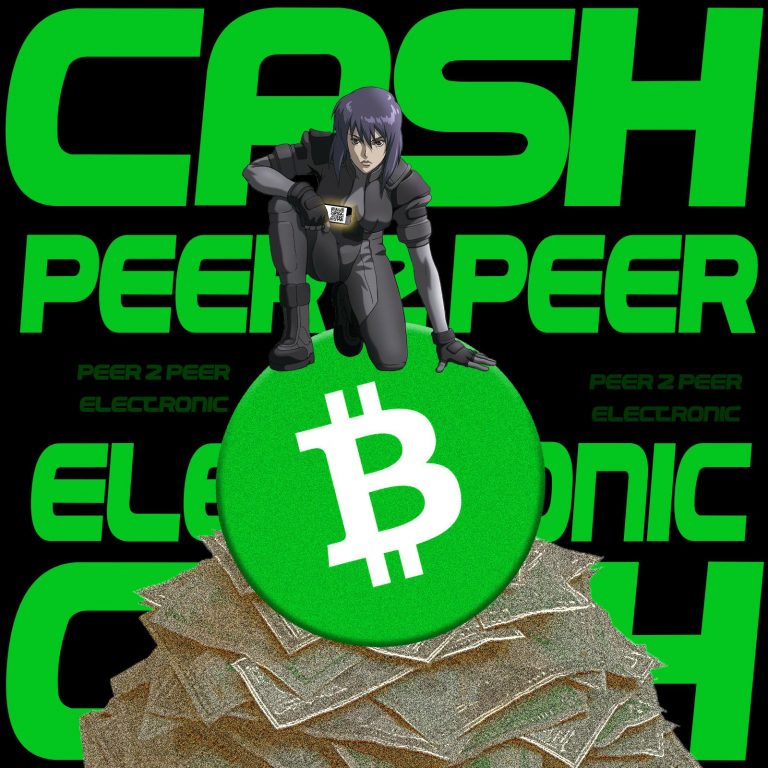
Just recently at the Satoshi’s Vision Conference in Japan the co-founder of the Tokyo Bitcoin Cash Meetup, Ken Shishido, discussed how he has been promoting BCH adoption in the country. Further, Shishido has been promoting a new BCH branding idea within the community by calling smaller fractions of BCH ‘Cash’ instead of ‘Bits’ and so far some members of the BCH community have been embracing the concept.
Also Read: OTC Cryptocurrency Desks Trade Billions Over Skype
Promoting Bitcoin Cash Throughout Japan and Worldwide
Ken Shishido is well known in Japan throughout the cryptocurrency circuit. He is the organizer and co-founder of the Tokyo Bitcoin Cash Meetup. Just recently Shishido gave a presentation on how he thinks adoption should be promoted in Japan and some of the ways he and the Meetup members have been bolstering widespread acceptance. At the Satoshi’s Vision Conference (SVC) Shishido explains that he has hosted over 170 cryptocurrency Meetups over the past years, describing his background within the bitcoin industry in Japan. The Tokyo Meetup organizer has also traveled all around the world spreading the gospel of cryptocurrencies as well. Shishido explains to the crowd that Japan has one of the highest populations of cryptocurrency users worldwide with roughly 2 million users in the country, according to his estimates.

BUIP087: Using the Denomination ‘Cash’ for One Hundred Satoshi
During the end of Shishido’s discussion he briefly mentions one the goals he is currently working on which is changing the name for smaller fractions of bitcoin cash from ‘Bits’ to ‘Cash.’ Essentially, Shishido has submitted a BUIP request to change the terminology in bitcoin cash to “cash” (CSH) as the standard term for 100 (one hundred) ‘satoshi’ or 1/1,000,000 (one one-millionth) of a bitcoin cash (BCH). Shishido explains his motivation for wanting to change the current terminology.
“Bitcoin cash strives for the worldwide adoption, and unit denomination and calculation must be easy for the average users for daily transactions — And, it needs to to be differentiated from Bitcoin Core (BTC) to avoid confusion,” explains Shishido’s BUIP request.
The “cash” denomination has been discussed and proposed by many people before. Authors of this BUIP take no credit for inventing the term — As BCH grows in price versus fiat currencies, it’s important to give users the ability to quickly and accurately calculate prices for transactions, savings and other economic activities.

Unit Wallet Adds the ‘Cash’ Denomination
So far Shishido’s idea has been welcomed by the community and he has been asking businesses to consider the idea. Just recently the bitcoin cash-centric mobile platform Unit Wallet just launched its latest 2.0 version with new features like the Cash address format.

Moreover, Unit Wallet also utilized Shishido’s cash denomination concept and smaller fractions of BCH contain the word ‘cash’ in the user interface. Check out why Ken Shishido thinks BCH proponents should bolster the idea of a ‘cash’ denomination in the video below.
What do you think about using the ‘cash’ denomination for smaller fractions of BCH? Let us know what you think about this subject in the comments below.
Images via Twitter, and the Satoshi’s Vision Conference Tokyo.
We got it all at Bitcoin.com. Do you want to top up on some bitcoins? Do it here. Need to speak your mind? Get involved in our forum. Wanna gamble? We gotcha.
The post Ken Shishido Wants Everybody to Use the ‘Cash’ Denomination for Fractions of BCH appeared first on Bitcoin News.
 Just recently at the Satoshi’s Vision Conference in Japan the co-founder of the Tokyo Bitcoin Cash Meetup, Ken Shishido, discussed how he has been promoting BCH adoption in the country. Further, Shishido has been promoting a new BCH branding idea within the community by calling smaller fractions of BCH ‘Cash’ instead of ‘Bits’ and so […]
Just recently at the Satoshi’s Vision Conference in Japan the co-founder of the Tokyo Bitcoin Cash Meetup, Ken Shishido, discussed how he has been promoting BCH adoption in the country. Further, Shishido has been promoting a new BCH branding idea within the community by calling smaller fractions of BCH ‘Cash’ instead of ‘Bits’ and so […]




 Once your attention flips from the dramatic drops and rises in bitcoin’s value and you’ve gotten over the marketing hype about blockchains and ICOs, your thoughts may eventually turn to how the whole thing works. Terms like “bitcoin mining” and “digital gold” conjure up images of men with hardhats descending into dimly-lit caves, but that’s obviously not how this commodity is mined. That begs the question of how it is. Can anyone mine bitcoin? And what is MaaS? Bitcoin Mining Basics We know that it doesn’t take a flashlight and a pick to mine bitcoin. A computer science degree and
Once your attention flips from the dramatic drops and rises in bitcoin’s value and you’ve gotten over the marketing hype about blockchains and ICOs, your thoughts may eventually turn to how the whole thing works. Terms like “bitcoin mining” and “digital gold” conjure up images of men with hardhats descending into dimly-lit caves, but that’s obviously not how this commodity is mined. That begs the question of how it is. Can anyone mine bitcoin? And what is MaaS? Bitcoin Mining Basics We know that it doesn’t take a flashlight and a pick to mine bitcoin. A computer science degree and